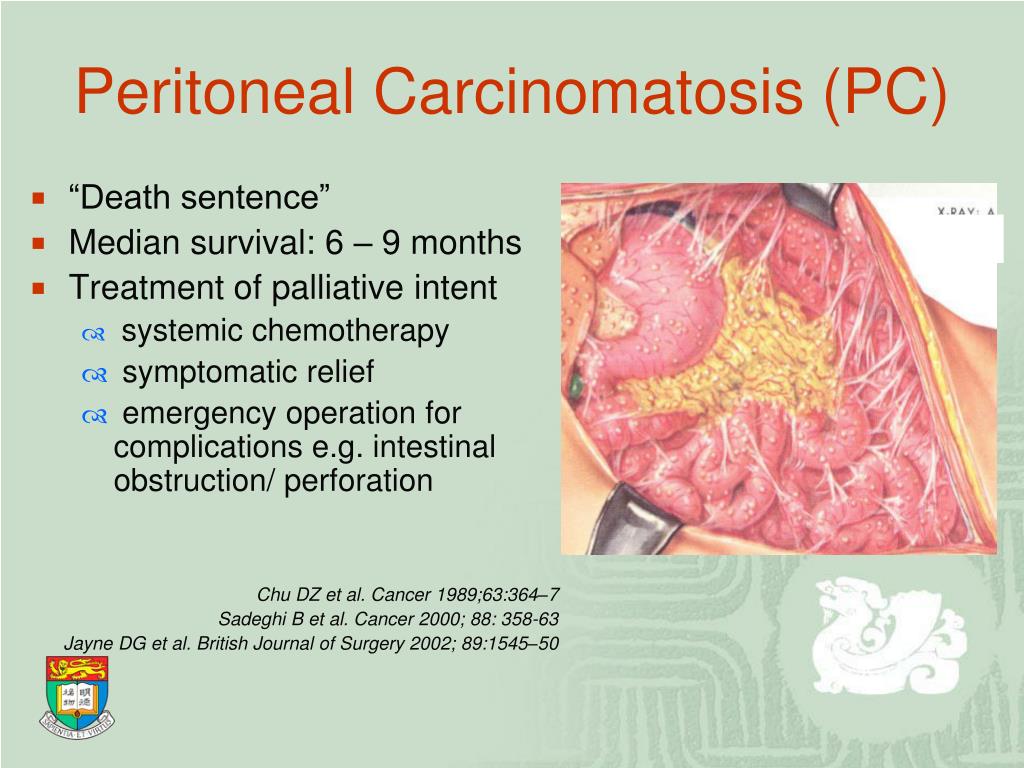What Causes Peritoneal Cancer
Peritoneal cancer, also known as peritoneal carcinomatosis, is a type of cancer that affects the lining of the abdomen. It occurs when cancer cells spread to the peritoneum, which is the thin layer of tissue that covers the abdominal organs. While uncommon, peritoneal cancer can be extremely aggressive and difficult to treat. In this post, we will explore the causes, symptoms, diagnosis, and treatment of peritoneal cancer.
Causes
The exact cause of peritoneal cancer is unknown, but it often occurs when cancer cells from other parts of the body metastasize, or spread, to the peritoneum. Some of the most common types of cancer that can lead to peritoneal cancer include:
- Colorectal cancer
- Ovarian cancer
- Pancreatic cancer
- Gastric cancer
- Breast cancer
Other risk factors that may increase the likelihood of developing peritoneal cancer include:
- A history of cancer in the abdomen or pelvis
- A family history of peritoneal cancer or ovarian cancer
- A weakened immune system
- Exposure to asbestos or other cancer-causing substances
Symptoms
The symptoms of peritoneal cancer can be vague and non-specific, which can make it difficult to diagnose early. Some of the most common symptoms of peritoneal cancer include:
- Abdominal pain or discomfort
- Swelling or bloating in the abdomen
- Nausea or vomiting
- Loss of appetite or feeling full quickly
- Constipation or diarrhea
- Fatigue or weakness
If you experience any of these symptoms, it is important to speak with your doctor to determine the underlying cause and receive appropriate treatment.
Diagnosis
The diagnosis of peritoneal cancer typically begins with a physical exam and medical history. Your doctor may also order a number of diagnostic tests to help confirm a diagnosis of peritoneal cancer, including:
- Blood tests to check for any abnormalities
- Imaging tests such as CT scans, MRIs, or ultrasounds
- A biopsy of the peritoneum or other affected tissue
Treatment
The treatment of peritoneal cancer depends on a number of factors, including the type and stage of cancer, as well as your general health and preferences. Some of the most common treatments for peritoneal cancer include:
- Surgery to remove any visible cancerous tissue
- Chemotherapy to kill cancer cells throughout the body
- Hyperthermic Intraperitoneal Chemotherapy (HIPEC), which involves the delivery of heated chemotherapy directly to the abdomen during surgery
In some cases, a combination of treatments may be used to achieve the best possible outcome.
Conclusion
Peritoneal cancer is a rare but potentially life-threatening condition that affects the lining of the abdomen. While the exact cause of peritoneal cancer is unknown, it often occurs when cancer cells from other parts of the body metastasize to the peritoneum. The symptoms of peritoneal cancer can be vague and non-specific, making it important to speak with your doctor if you experience any abdominal pain or discomfort. Diagnosis typically involves a physical exam, medical history, and diagnostic tests such as blood tests, imaging tests, or biopsy. Treatment may involve surgery, chemotherapy, HIPEC, or a combination of treatments to achieve the best possible outcome. If you or someone you know is experiencing symptoms of peritoneal cancer, it is important to seek medical attention as soon as possible to receive a proper diagnosis and appropriate treatment.
Images
Learn about Peritoneal Cancer YouTube

Peritoneal cancer is a type of cancer that affects the lining of the abdomen.
PPT Management of Peritoneal Carcinomatosis in Colorectal Cancer

Colorectal cancer is one of the most common types of cancer that can lead to peritoneal cancer.